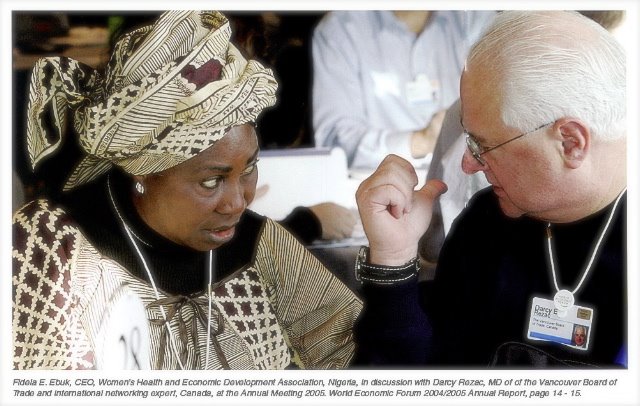 JACK WELCH'S NEW PERSPECTIV: " Shareholder value emphasis misplaced'... The Financial Times (13 March 09) reported that Jack Welch, long associated with the "shareholder is king" ethos-also known as the "shareholder value movement"--now says it was all a big mistake. This corporate philosophy was quickly adopted in boardrooms across America in the '80s and spread like a corporate virus around the world, following a famous and well reported speech Welch delivered at the Pierre Hotel in NY in 1981. Some attribute the financial chaos circling the globe today to business and Wall Street putting profit before people-customers, employees and communities. Selling subprime mortgages to unqualified customers who had no hope of repaying them, in the name of 'shareholder value,' caused this ill-founded house of cards to collapse, and with a crash. Now, almost 30 years later, Jack says it was all a big mistake. Welch said at a recent conference on the future of capitalism that it was "a dumb idea" for executives to focus so heavily on quarterly profits and share price gains. The former General Electric chief told the Financial Times the emphasis executives and investors had put on shareholder value after his speech - was misplaced. Looking at my RRSPs daily, along with millions of others, can't help but thinking, "We're not alright, Jack!"
JACK WELCH'S NEW PERSPECTIV: " Shareholder value emphasis misplaced'... The Financial Times (13 March 09) reported that Jack Welch, long associated with the "shareholder is king" ethos-also known as the "shareholder value movement"--now says it was all a big mistake. This corporate philosophy was quickly adopted in boardrooms across America in the '80s and spread like a corporate virus around the world, following a famous and well reported speech Welch delivered at the Pierre Hotel in NY in 1981. Some attribute the financial chaos circling the globe today to business and Wall Street putting profit before people-customers, employees and communities. Selling subprime mortgages to unqualified customers who had no hope of repaying them, in the name of 'shareholder value,' caused this ill-founded house of cards to collapse, and with a crash. Now, almost 30 years later, Jack says it was all a big mistake. Welch said at a recent conference on the future of capitalism that it was "a dumb idea" for executives to focus so heavily on quarterly profits and share price gains. The former General Electric chief told the Financial Times the emphasis executives and investors had put on shareholder value after his speech - was misplaced. Looking at my RRSPs daily, along with millions of others, can't help but thinking, "We're not alright, Jack!"
Wednesday, March 18, 2009
POLICY: Financial Times Newsflash! "Dumb idea" for executives to focus so heavily on quarterly profits, says early disciple of original concept.
 JACK WELCH'S NEW PERSPECTIV: " Shareholder value emphasis misplaced'... The Financial Times (13 March 09) reported that Jack Welch, long associated with the "shareholder is king" ethos-also known as the "shareholder value movement"--now says it was all a big mistake. This corporate philosophy was quickly adopted in boardrooms across America in the '80s and spread like a corporate virus around the world, following a famous and well reported speech Welch delivered at the Pierre Hotel in NY in 1981. Some attribute the financial chaos circling the globe today to business and Wall Street putting profit before people-customers, employees and communities. Selling subprime mortgages to unqualified customers who had no hope of repaying them, in the name of 'shareholder value,' caused this ill-founded house of cards to collapse, and with a crash. Now, almost 30 years later, Jack says it was all a big mistake. Welch said at a recent conference on the future of capitalism that it was "a dumb idea" for executives to focus so heavily on quarterly profits and share price gains. The former General Electric chief told the Financial Times the emphasis executives and investors had put on shareholder value after his speech - was misplaced. Looking at my RRSPs daily, along with millions of others, can't help but thinking, "We're not alright, Jack!"
JACK WELCH'S NEW PERSPECTIV: " Shareholder value emphasis misplaced'... The Financial Times (13 March 09) reported that Jack Welch, long associated with the "shareholder is king" ethos-also known as the "shareholder value movement"--now says it was all a big mistake. This corporate philosophy was quickly adopted in boardrooms across America in the '80s and spread like a corporate virus around the world, following a famous and well reported speech Welch delivered at the Pierre Hotel in NY in 1981. Some attribute the financial chaos circling the globe today to business and Wall Street putting profit before people-customers, employees and communities. Selling subprime mortgages to unqualified customers who had no hope of repaying them, in the name of 'shareholder value,' caused this ill-founded house of cards to collapse, and with a crash. Now, almost 30 years later, Jack says it was all a big mistake. Welch said at a recent conference on the future of capitalism that it was "a dumb idea" for executives to focus so heavily on quarterly profits and share price gains. The former General Electric chief told the Financial Times the emphasis executives and investors had put on shareholder value after his speech - was misplaced. Looking at my RRSPs daily, along with millions of others, can't help but thinking, "We're not alright, Jack!"
Subscribe to:
Post Comments (Atom)



3 comments:
NEWS 1130 VANCOUVER Reported today that a recent survey showed that 2/3 of the public didn't trust business....my guess is much can be attributed to the zealot-like pursuit of profits over people and planet as a result of celebrity CEO Jack Welch's musings and teachings...he really was considered the King of CEO's in his time, revered around the world.
The media routinely attributed GE's growth to his leadership and philosophy. Too bad it was only leadership for the moment, and not sustainable...
Didn't read anywhere that he said "Sorry"...it's time, Jack...
While I agree that it was a dumb idea for executives to focus so heavily on quarterly profits and share price, I'm not entirely convinced that the ‘shareholder value’ movement should take all the blame for the ills that currently plague our economy.
I believe that many, if not most of the problems we are now facing are largely the result of something far more fundamental. Let’s face it, the decisions and actions that lead to where we are today did little to benefit the average/honest shareholder. So that leads us to only three possibilities:
1)Those making the decisions were grossly incompetent (if their true purpose was sustainable shareholder value, they failed big time)
2)They knew what they were doing was wrong, but acted (and caused others to act) out of fear, fear of their masters and/or fear for their jobs(hardly the profile of courageous leadership)
3)Or worst of all, they knew what they were doing was wrong, but were acting on some far more devious motivator, such as personal profit, or plain old fashion greed
In any event, the bigger and far more pressing issue isn't what happened and why, but rather what are we going to do to get out of this mess.
Like you, I suspect that the solution lies in a return to the basics and true value-based leadership.
In your extended article you referenced Drucker’s famous quote "the purpose of business is to discover a customer…” I’d like to suggest that herein lays the answer. To get out of this hole we need to recognize and reward (with our patronage, investments and loyalty) only those companies and leaders who’s focus is clearly on a greater purpose, or what Tom Peters and Chris Nel referred to as a purpose beyond profit, or PBP for short.
While the PBP may vary from company to company, surely what we are talking about here is something that supports the greater good of all stakeholders and I’m betting that the best place to find that something is to start with the question - what is in the best interest of the ultimate decision maker – the customer?
Thanks Jim,
Let's examine your thesis. Sub-prime mortgages.
Selling mortages to people who don't qualify, can't carry them and have no hope of paying the money back is clearly not a 'customer-focused' practise. That would call for the long-term well-being of the customer being job one, which it clearly was not for hundreds of US financial institutions who were in business with a 'profit-maximization' focus. It was not sustainable and the whole house of cards collapsed and the entire economy of the world drove off a cliff as a result. There is consensus that the sub-prime debacle caused it all; and the financial sector, including Wall Street Investment Banks, Insurance Companies like AIG AND the rating agencies were all in on it. Bad public policy helped when Mr Clinton established a policy through Fannie May and Freddie Mac to get all Americans into their own home regardless of means. I wouldn't say Jack was the only culprit, but his philosophy of profits and shareholders first, picked up by so many CEO's in the financial sector, played a huge part, in my view. This idea of making CEO's and directors AGENTS of the shareholder solely, rather than AS WELL AS the customer and other stakeholders was a clear recipe for the disaster that now befalls the world.
Darcy
Post a Comment